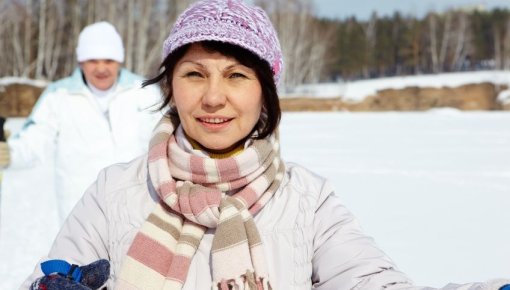A long road to diagnosis
But the doctors couldn't help me. They tried different pain-relieving treatments, but none of them worked. I found it very hard to cope with mentally, and nothing helped. For instance, I was sent to an orthopedic rehabilitation center, but was told straight away that with my symptoms I had come to the wrong place. But they treated me anyway. After rehabilitation I was prescribed psychotherapy. That really did me good.
At some stage the pain had spread out so far into my right leg that I could only drag it behind me when walking. It was a permanent, burning pain, like when you really push your body to the max, and it didn't let off at all. The pain felt like I was wearing a corset. The muscles in my torso and in my arms and legs felt constricted. Everything got tighter and I could only walk at a snail's pace.
I couldn't carry on. I read up on my symptoms, suspected it might be Parkinson's and asked my neurologist to do an L-Dopa test. It did make me feel really sick and I had to vomit, but after a few minutes my body felt completely normal again. It felt as if that corset had just fallen off! The pain was gone and it felt simply amazing.
I was then referred to a Parkinson's clinic for treatment. The head doctor there thought the reasons for my pain were more psychological, because pain isn't actually one of the main symptoms of Parkinson's. That was terrible for me. I wasn't willing to accept that and got a second opinion. That neurologist confirmed that I had Parkinson's. After that everything went well. I was prescribed the right medication at the right dose.

